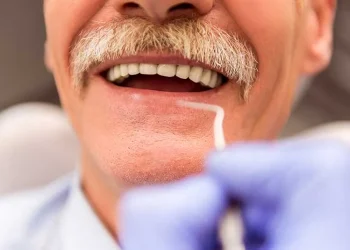Contents
Can you get braces if you have missing teeth
Dental braces have been a popular solution for crooked teeth for decades. However, many individuals who need braces may have lost teeth due to injury, decay, or other causes, leading to the question, “Can you have braces if you have lost teeth?” Moreover, if the lost tooth is left untreated, it can lead to difficulty in chewing and speaking. As a result, many individuals may wonder if they need a dental implant before getting braces.
Can you have braces if you have lost teeth?
When it comes to treating a patient who has lost teeth, there are many factors that must be taken into account to determine the best course of action. One of the most critical factors to consider is the extent of the tooth loss, as it can significantly impact the patient’s overall oral health. Depending on the location of the missing teeth, braces may still be a viable option if the gaps can be filled by moving the remaining teeth. However, if the missing teeth are located at the back of the mouth, braces may not be the best solution due to lack of support for remaining teeth.
Moreover, braces may not always be the best solution as they can potentially exacerbate the problem by exerting too much pressure on the existing teeth. In light of this, it is vital to thoroughly assess the patient’s overall oral health before deciding on the most appropriate treatment plan. In addition to the degree of tooth loss, other factors such as the patient’s age, gum and jawbone conditions, and medical history must also be taken into account.
By considering all of these factors, an all-inclusive treatment plan can be developed to restore the patient’s oral health and ensure they have a bright and healthy smile for many years to come. The treatment plan may include procedures such as dental implants, bridges, or dentures, depending on the specific needs of the patient. Furthermore, a good dental hygiene routine, consisting of regular check-ups and cleanings, can help to maintain the health of the patient’s remaining teeth and prevent further oral health complications.

The Braces Process for People with Lost Teeth
If it is determined that braces are a viable option for a patient with missing teeth, the process will typically follow these steps:
Initial Consultation
When you visit an orthodontist, they will conduct a comprehensive examination of your oral health to determine whether you are a good candidate for braces. During the examination, the orthodontist will take a close look at your teeth, gums, and jaw to assess their current condition. They will also evaluate how your upper and lower teeth come together and examine the alignment of your bite.
After the examination, the orthodontist will discuss any concerns you may have and will explain the treatment process. This includes the different types of braces available to you and what they involve, how long you will need to wear them, and what you can expect during the treatment process. The orthodontist will also provide you with instructions on how to care for your braces and will schedule regular appointments to monitor your progress. It’s important to follow the orthodontist’s instructions carefully to ensure the best possible outcome for your oral health.
Preparation
Before the braces are applied, the orthodontist will first check the patient’s teeth to see if there are any that need to be removed. If there are, they will be extracted through a simple procedure to ensure that the braces can be applied properly. After that, the orthodontist will take X-rays and impressions of the teeth to create a personalized treatment plan that is tailored to the patient’s specific needs. This will help ensure that the braces are not only effective but also comfortable to wear. The treatment plan will outline the braces‘ duration, how often the patient will need to come in for adjustments, and what kind of after-care they will require to ensure optimal results.
Application of Braces
When you go to the orthodontist, they will apply braces to your remaining teeth to correct their position and close any gaps. However, depending on the severity of the tooth loss, additional appliances may be required to provide support for the teeth. These appliances may include a bridge or partial denture. The orthodontist will assess the extent of the tooth loss to determine the best course of action for your individual needs. Once the braces are applied, you will need to attend regular appointments to ensure that the teeth are moving into the correct position and to make any necessary adjustments.
Adjustments
The patient will need to visit the orthodontist regularly to have their braces adjusted. During these appointments, the orthodontist will evaluate the progress of the treatment and make any necessary adjustments to ensure that the teeth are moving into the correct position. In addition to braces adjustments, the orthodontist may also recommend other treatments or procedures, such as the use of rubber bands or headgear, to help correct any bite or alignment issues.
Removal of Braces
After the teeth have been moved into the correct position, the orthodontist will remove the braces, and the patient will finally be able to enjoy their beautiful new smile. The patient will then need to wear a retainer, which is a custom-made appliance designed to keep the teeth in their new position. Retainers are typically worn for several months to a few years, depending on the individual case.
During this time, the teeth may continue to shift slightly as they settle into their new positions. It is important to wear the retainer as directed by the orthodontist to ensure that the teeth do not shift back to their original position. Additionally, patients should continue to practice good oral hygiene habits and visit their dentist regularly for check-ups and cleanings to maintain their healthy new smile.
It’s important to note that the braces process for people with missing teeth may take longer than for those with a full set of teeth. Additionally, the patient may need to undergo additional procedures, such as dental implants or bridges, to provide support for the remaining teeth. However, with proper care and treatment, individuals with missing teeth can still achieve a healthy, beautiful smile with the help of braces.
Do you need a dental implant?
If a patient has lost a tooth or teeth, it might be necessary to consider dental implants before getting braces. Dental implants are a popular and effective solution to tooth loss.
The implants are placed in the jawbone, where they act as a replacement for the natural tooth root. The crown is then attached to the implant, which provides additional support for the remaining teeth and prevents them from shifting during orthodontic treatment. Furthermore, dental implants can help to restore the patient’s ability to chew and speak properly, as well as improve their overall appearance, which can have a significant impact on their confidence and self-esteem.
When considering dental implants, it is crucial to understand that this procedure is not suitable for all patients. Certain factors such as bone density, gum health, and medical conditions can complicate or even make the procedure impossible. While it is important to keep these factors in mind, it is also essential to note that the benefits of dental implants are vast and can greatly improve a patient’s oral health and overall well-being.
In addition to the above, it is worth noting that dental implants may come with a significant cost. While some insurance plans may offer coverage for the procedure, it is common for patients to be left with a portion of the expenses that they must pay out of pocket. However, it is important to keep in mind that dental implants are a valuable investment in one’s oral health, and the long-term benefits make it a worthwhile expense for many patients. The implant’s durability, function, and natural appearance make it a popular choice amongst dental patients, and the benefits of the procedure can last a lifetime.
In conclusion, the answer to whether or not you can have braces if you have lost teeth depends on the extent of the tooth loss and the overall health of your mouth. If you have missing teeth in the front of your mouth, braces may still be an option, but if the missing teeth are in the back, other solutions may be recommended. Additionally, if you have lost teeth, a dental implant may be necessary before getting braces to provide additional support for your remaining teeth. It’s important to consult with your orthodontist and dentist to determine the best course of treatment for your individual needs.















